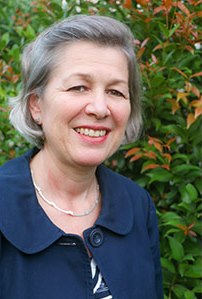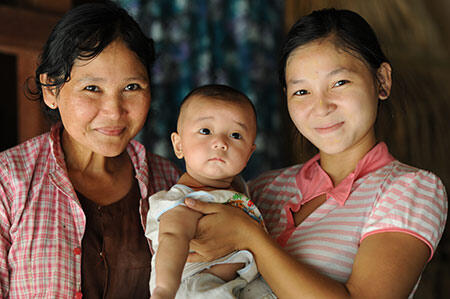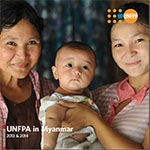UNFPA Myanmar has published a report of its activities in 2013 and 2014. The report is the first of its kind since UNFPA established a presence in the country in 1973. The report showcases UNFPA Myanmar’s results in enhancing policy dialogue, advocacy, knowledge creation and capacity building. We have worked to deliver more equitable development outcomes by empowering young people, promoting gender equality and improving access to sexual and reproductive health services.

A large part of the last two years has been dedicated to supporting the 2014 Population and Housing Census. For the first time in over 30 years, Myanmar has access to credible and reliable data that will be critical for future development planning and policy making.
In addition to the Census, key highlights of UNFPA’s work with its partners in 2013 and 2014 include increasing the skills of midwives and conducting a survey in 30% of the country’s health facilities to gather evidence-based information for health system strengthening for the provision of quality reproductive health commodities and services.
As the Census highlighted, 30% of the country’s population are aged between 10 and 24 years. UNFPA has supported significant progress in setting up youth centred programmes with Marie Stopes International (MSI), Myanmar Medical Association (MMA) and other partners across the country. These centres have provided youth with information and access to services on RH as well as encouraged them to engage in civil society as the country continues its transition to democracy. MSI has reached 80,000 young people aged 15-24, MMA has cascaded training to 13,200 young people, and 70 Youth Information Centres have been set up in townships in seven States and Regions in partnership with the Central Health Educational Bureau.
Humanitarian assistance to displaced persons in Kachin and Rakhine has included lifesaving and essential reproductive health services. Additionally, in partnership with Metta Foundation, eight women and girl’s centres have been established to provide a safe space for survivors of gender-based violence (GBV). 5,121 women and girls accessed these centres in 2013 and 2014. Trainings have also been held for men and boys in the surrounding communities to give them an understanding of GBV and to tackle established cultural and societal norms.
This is a snapshot of our activities, you can read more by visiting here.



